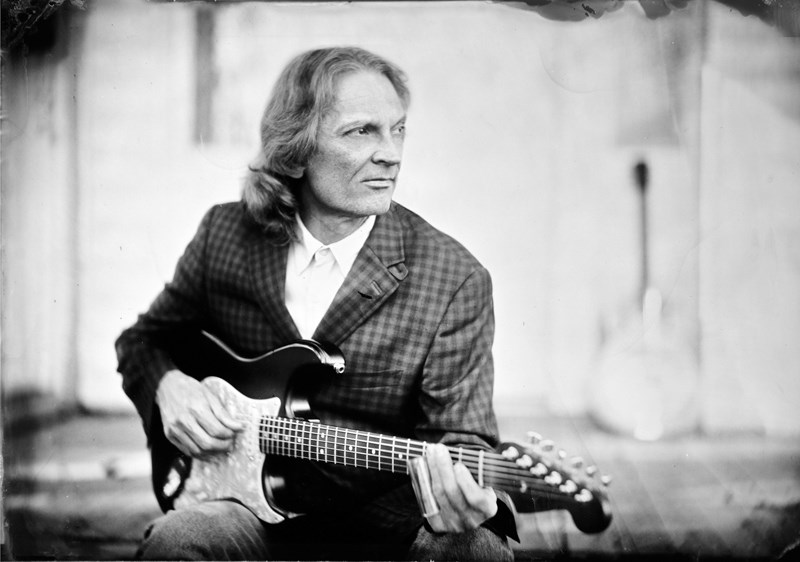Sonny Landreth, BlueShore Financial Centre for the Performing Arts at Capilano University, Thursday, June 29, 8 p.m. (coastaljazz.ca).
If musical grooves sparkled like diamonds you’d be able to see Louisiana from space.
Speaking from his home between Lafayette and Breaux Bridge, guitarist Sonny Landreth recalls growing up amid the pelican state’s musical treasure trove.
Louis Armstrong’s hot fives and sevens might have been recorded in Chicago and New York, but those trumpet solos were pure New Orleans. Louisiana gave us Slim Harpo and Fats Domino, Professor Longhair and Dr. John. Zydeco. Parades led by black musicians that were so much fun they were against the law. Elvis sang about the crawfish there, or at least on a soundstage that were supposed to be there.
You could dive into that musical fortune like Scrooge McDuck but there was still the problem of figuring out what to take and what to leave.
“Music is such a big part of the tradition and a big part of the culture,” Landreth says in his laid-back Louisiana drawl. “Which is great, but it’s also possible to be going in too many directions at once.”
While guitar was his first love, trumpet was Landreth’s “academic instrument.” He confides that somewhere in his “ancient history” there’s a photo of him playing trumpet while a guitar dangles off his neck.
“I didn’t start playing guitar till I was 13 which, by today’s standards, is way too late,” he says.
One of the traits that distinguishes Landreth’s guitar is that it seems to breathe.
As a trumpet player your phrasing is based around needing to draw breath. Landreth brought that same phrasing to the guitar.
“Both my jazz heroes … and my guitar heroes … especially the old Delta blues cats, that’s what they were all about, having a vocal quality on a guitar,” he says.
If Landreth was sculpting a Mt. Rushmore for his musical titans, he’d probably need all 7,000 kilometres of the Andes.
As a singer he might have been drawn to Elvis, but the guitar player in him was captivated by Elvis’ sideman.
“Scotty Moore was my hero,” he says. “But I have more heroes than I can count.”
There were heroes of R&B, rock ‘n’ roll, jazz and blues. Sounds rained on him like needles tumbling off bald cypress trees in autumn.
Then he found the slide technique.
His left pinky runs up and down the neck of the guitar, settling into a sweet spot while his other three fingers stretch the strings while his right hand strums and drums, creating a sound that fuses multiple influences into one form like Vietnamese tacos.
“Slide enabled me to take all of those different influences in such a way as to crystallize it.”
Just recently, he’s taken that sound to Sao Paulo, Brazil on his way to the East Coast and then back to the Pacific Northwest.
“It catches up with you, that’s a fact,” he says with a laugh.
He’s promoting, Recorded Live in Lafayette. Set to be released June 30, the album is a collection of new versions of some of Landreth’s favourite songs over his more than 40 years in the music industry.
These days Landreth generally opens with an acoustic set, breaks “long enough to move the gear around,” and plugs in.
When songwriters like Bob Dylan and Paul Simon come up, Landreth expresses admiration with a good deal of deference.
“Of course, I never expect to write a song as good as any of them, but … if my song was to follow one of theirs, I wouldn’t be embarrassed,” he laughs.
But there’s something about live music that brings out the best in him, he explains.
“You go to another place,” he says. “I play better, I can’t play like that at home on the couch, much as I’ve tried.”
For Landreth, the shows are a way out of everything but the moment.
“We all have this sense of wonder that we sometimes forget about with the weight of the day,” he says. “If people can take a little bit of that home I feel like I’ve done my job.”



